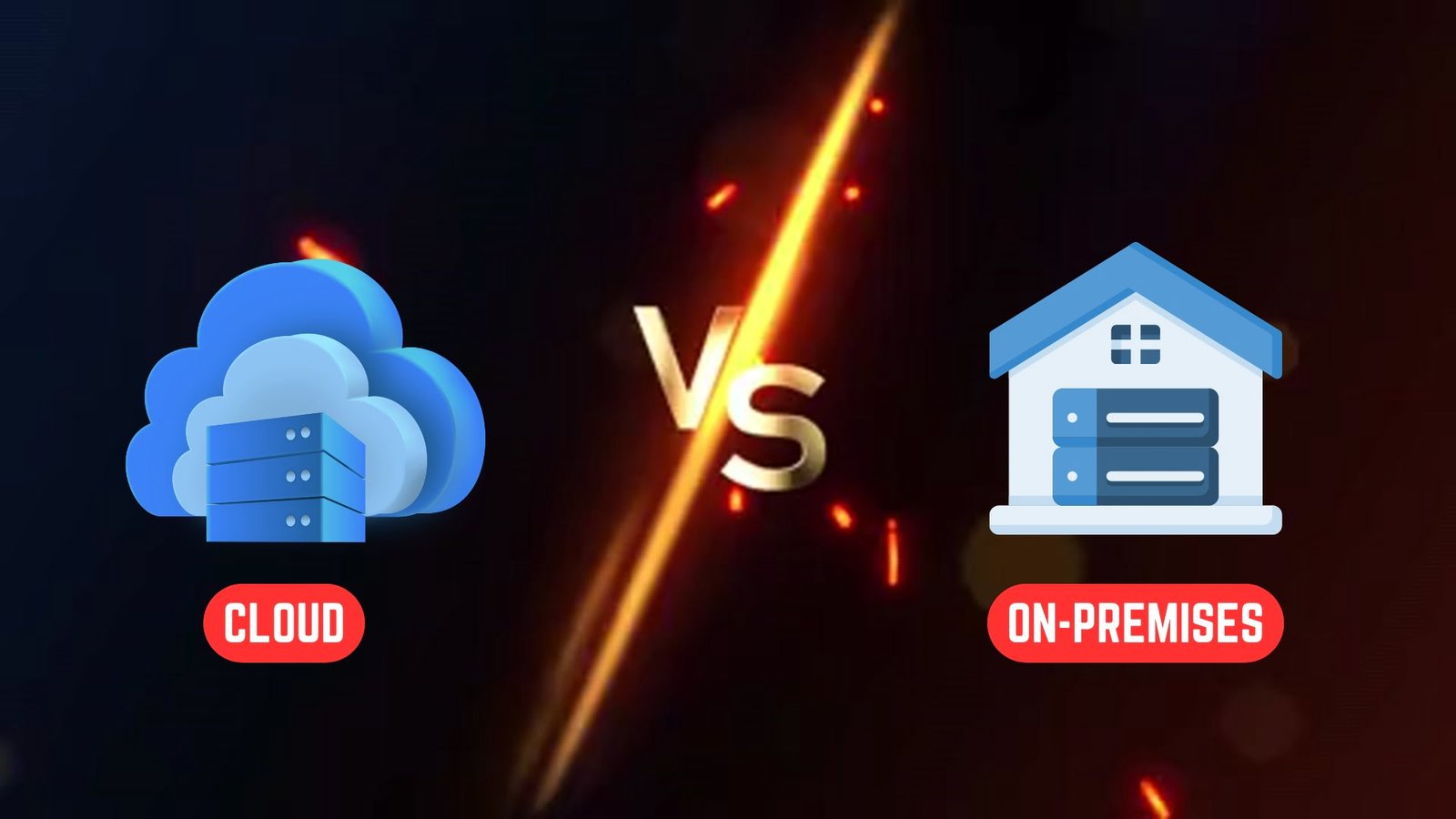The cloud vs. on-prem battle has been the subject of tech world discussions for ages. However, as soon as issue of selection comes, how to select the best one for your organization, it would be ambiguous. Now, let’s take a look at the details of these two types to assist you in making the optimal decision.
What is Cloud Computing?
Cloud computing lets you store, organize, and compute data on the internet. In the case of business, computing hardware and software are not hosted locally but rather in third-party data centers and infrastructure. Think of it as renting a fully equipped workspace rather than owning an office.
What is On-Premises Solution?
On-premises solutions consist of software and data environments hosted on a customer’s own environment. This configuration provides complete control of the system, at the cost of significant hardware investment, maintenance, and IT resources.
Key Differences Between Cloud and On-Premises
| Feature | Cloud Computing | On-Premises |
|---|---|---|
| Deployment | Internet-based | Local infrastructure |
| Cost Structure | Pay-as-you-go | Upfront investment |
| Scalability | Highly flexible | Limited to hardware capacity |
| Maintenance | Managed by provider | Requires in-house IT team |
| Accessibility | Remote access | On-site access |
Advantages of Cloud Computing
- Cost Efficiency: You only pay for the resources you use, making it budget-friendly.
- Scalability: Scale up or down based on your needs without additional hardware.
- Accessibility: Work from anywhere, anytime, with an internet connection.
- Automatic Updates: Providers handle software and security updates for you.
- Reduced Maintenance: IT staff can focus on strategic projects rather than routine maintenance.
Advantages of On-Premises Solutions
- Full Control: Complete ownership of your systems and data.
- Enhanced Security: Keeps sensitive data within your premises, crucial for industries like finance or healthcare.
- Customizability: Tailor the setup to meet specific organizational needs.
- Reliability: Less dependence on internet connectivity.
- Regulatory Compliance: Easier to adhere to strict compliance requirements.
Cost Implications: Cloud vs On-Premises
Cost often becomes the deciding factor. While cloud solutions offer low upfront costs, the ongoing subscription fees can add up. On-premises is a substantial initial outlay, but could result in cost savings in the long run if optimized.
Scalability and Flexibility
If there are times of peaks and troughs in the workloads in an organization, then cloud solutions are unmatched in their ability to dynamically scale up/down resources. Off-premises, however, may be unable to cope with unexpected surges in demand because of hardware restrictions.
Security and Compliance Factors
Although cloud providers are enforcing sophisticated security measures, there remains a number of organizations that would like to have on-premises hardware for more control over sensitive information. Industries subject to very tight regulatory requirements typically gravitate towards, for the sake of peace of mind, on-premises.
Performance and Reliability
Cloud services rely on network availability, which can be a performance limitation for organizations that reside in regions of low connectivity. Off-premises solutions offer reliable performance, however they may need some high level of maintenance to avoid downtime.
When to Choose Cloud Solutions
- Startups and SMEs: For businesses with limited capital and dynamic needs.
- Remote Workforces: Ideal for teams spread across different locations.
- Rapid Scalability Needs: Perfect for industries like e-commerce or tech startups.
When to Opt for On-Premises Solutions
- Highly Regulated Industries: Such as healthcare, finance, and government.
- Large Enterprises: With the resources to maintain in-house infrastructure.
- Data Sensitivity: When dealing with extremely confidential data.
Hybrid Solutions: The Best of Both Worlds
Hybrid model combines cloud and local functionalities, so as to gain advantages of both in a company. For instance, use cloud storage for data that is not sensitive, but run critical applications on the premises.
Future of Cloud and On-Premises Technologies
The future is hybrid. As AI and edge computing evolve, businesses are adopting solutions which combine both techniques, providing efficiency and security.
Making the Right Choice for Your Organization
Decide whether to meet organization needs by using the cloud or on-premises. Considerations of cost, scalability, security, and compliance must be taken into account when making the decision. Yet, be aware that one size fits all is never the solution.
FAQs
What is the main difference between Cloud and On-Premises?
The cloud operates on internet-based infrastructure, while on-premises rely on local servers.
Are cloud solutions always cheaper than on-premises?
Not always; long-term costs depend on usage and business requirements.
Can small businesses benefit from on-premises setups?
Yes, but only if they have the resources to manage and maintain them.
How do hybrid solutions fit into the equation?
Hybrid solutions combine the strengths of both cloud and on-premises, offering flexibility and control.
Which option is better for high-security industries?
On-premises solutions are often preferred for industries requiring stringent data security.

